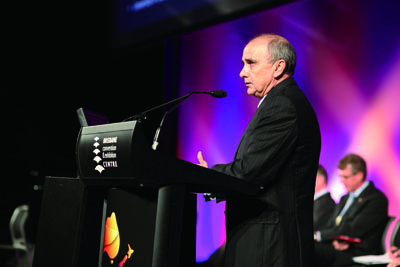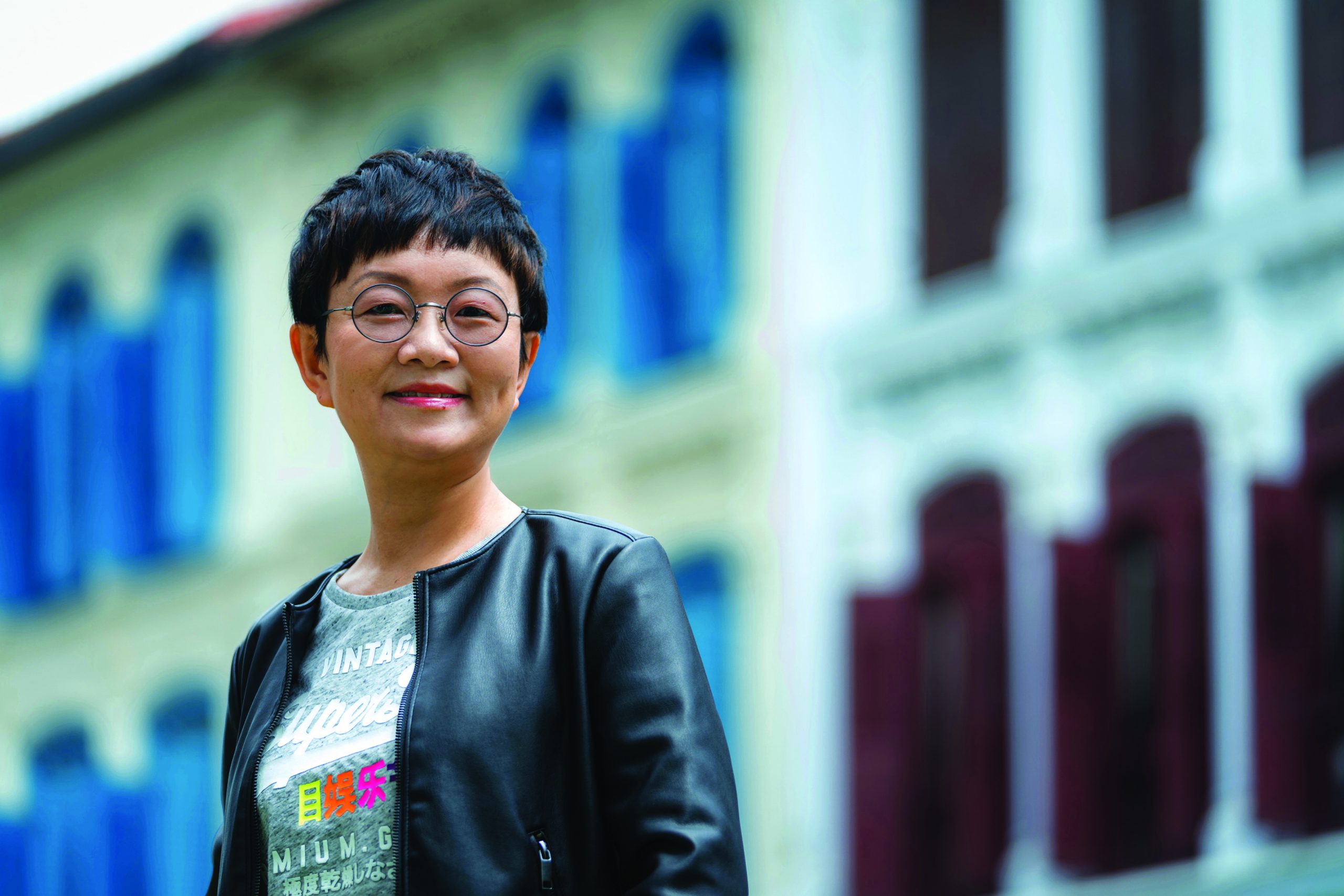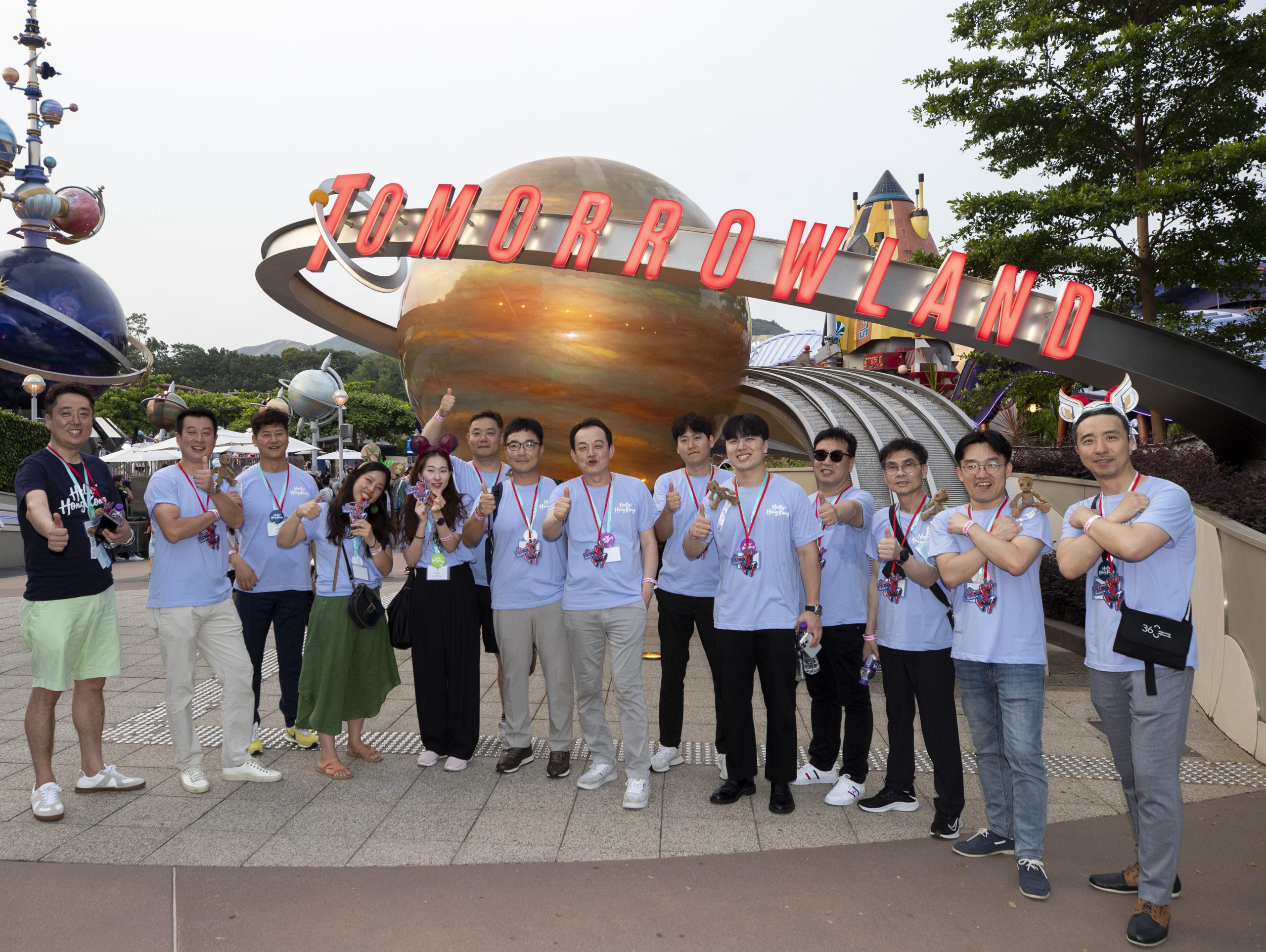
Ambassadors, advocates, envoys… there are many words and phrases used to describe people who champion causes ranging from organisations to countries, but there is only one valid definition when it comes to the meetings industry, according to the influential International Congress and Convention Association.
It is “a person of knowledge and stature, influential in their field, who can act as a representative of a destination and is prepared to work with local meetings professionals to secure conference business for that destination”, ICCA states in its guidebook Congress Ambassador Programmes.
And an ambassador programme, it continues, is “a planned set of activities, tools and support services designed by local meetings professionals to assist ambassadors to attract meetings to a city or country, and to assist those ambassadors to create a legacy benefit for the destination and/or the local hosts of the meetings”.
ICCA, which has nearly 1,000 members in 90 countries, says the primary rationale for convention bureaus and centres to set up ambassador programmes is to try to wield influence in the competitive bidding process for association meetings that rotate between countries.
Ambassador programmes tend to be more economical than alternative methods of campaigning and costs, which are “usually far less than the more ‘glamorous’ elements in a destination’s marketing programme, such as overseas trade shows and sales missions”, according to ICCA.
To attract conferences to their cities, convention bureaus are seeking business leaders, senior medical practitioners, scientists, academic leaders, political and social leaders, and influencers when bidding to be chosen as a host city.
Efforts are likely to be in vain if those chosen are simply aloof high fliers or ivory-tower academics. Knowledge ambassadors have to be natural communicators, internationalists and passionate about the destination in which they work. They will have leadership skills and are influential figures or recognised experts, groundbreaking researchers and rising stars.
Most ambassador programmes have been set up in the past decade or so, ICCA says, although Québec City Convention Centre Ambassadors’ Club has just celebrated its 21st year, with its 225 ambassadors facilitating around 170 international or North American events at the Québec City Convention Centre and other venues in the city, resulting in about US$117 million in economic benefits.
Melbourne, an ICCA member, has just celebrated the 11th anniversary of its Club Melbourne programme with the induction of 13 new ambassadors and the appointment of its first Fellow, RMIT University associate professor Sarah Spencer, a renowned neuroscientist. Club Melbourne, driven by Melbourne Convention and Exhibition Centre (MCEC) with the support of and collaboration from Melbourne Convention Bureau and the Victorian State Government, now has 120 ambassadors.
Suzana Bishop, Club Melbourne senior manager, says the ambassadors have been collectively involved in securing more than 117 international conventions for MCEC since the programme’s inception, worth in excess of A$658 million (US$502 million) to the State of Victoria. They secured 15 international conferences at MCEC in 2015/6 and helped win 15 bids for future events.
“Club Melbourne continues to grow from strength to strength and, to this day, remains one of the world’s most influential ambassador programmes,” Bishop says.
The Advocates Partnership, operated by Brisbane Convention and Exhibition Centre (BCEC) has only been running for six years, but was the result of earlier close co-operation with potential representatives, says BCEC director of sales Alison Gardiner.
“We have been working in partnership with our top scientists, researchers, academics, business leaders and innovators for many years and formalised those relationships six years ago with the establishment of the BCEC Convention Advocates Partnership,” Gardiner says.
“The partnership programme to date has resulted in securing 71 advocate-assisted bid wins for Brisbane generating A$90 million (US$68.5 million) in economic benefit for the city.”
Professor Ian Frazer, who gave the world its first cervical cancer vaccine, is among BCEC’s advocates. “The contribution is beyond financial, creating legacies into the future, sharing a wealth of world-leading knowledge and expertise,” says Gardiner.
Singapore Exhibition and Convention Bureau (SECB) also started its Conference Ambassador Programme in 2006 and it now has 50 members appointed for a two-year renewable term.
Jeannie Lim, executive director, SECB conventions, meetings and incentive travel, says the “collaborative efforts of passionate local champions” have resulted in many successful congresses and meetings in Singapore, and also helped secure two prominent meetings that will be staged for the first time in Singapore and Southeast Asia.
“Professor Lee Yuan Kun, president of the International Union of Microbiological Societies, worked with us to secure the bid for IUMS Congresses 2017 – a rotating congress that was slated to be hosted in Europe rather than Asia; and Professor Perry Shum, Singapore section chair of the Optical Society of America, won the bid for the Pacific Rim Conference on Lasers and Electro-Optics 2017,” she says.
Professors Lee and Shum were conferred Singapore Tourism Awards’ “Best Business Event” champions in 2014 and 2013 respectively in recognition of their previous efforts.
Malaysia appoints “warriors” to represent it for association congresses, as Malaysia Convention and Exhibition Bureau general manager Ho Yoke Ping explains.
“MyCEB’s conference ambassador programme is known as Kesatria Malaysia Programme (or Kesatria in short). Kesatria means ‘knight’ or ‘warrior’ in Malay. Our ambassadors are most often presidents or past presidents of national associations or industry leaders who have chaired or will be hosting international conventions in Malaysia.
“We launched our Kesatria Programme in 2012, and to date MyCEB has appointed 41 ambassadors from key economic sectors identified in our Economic Transformation Plan, such as science and medical, oil and gas, IT and electronics, research and innovation, and finance,” Ho says.
An example of its success is the recent announcement by the International Federation of Library Associations and Institutions that Malaysia is to host the 84th IFLA World Library and Information Congress in 2018. The bid was led by the Librarians’ Association of Malaysia with support from the Ministry of Tourism and Culture Malaysia, National Library of Malaysia, Malaysian Communications and Multimedia Commission, Kuala Lumpur Convention Centre (KLCC) and MyCEB.
MyCEB has been actively promoting its Kesatria Programme, with KLCC launching a contest at its 10th annual association seminar in March 2015 to give professional development grants to three young local association executives to attend the 55th ICCA Congress in Kuching, Sarawak, from November 12-16.
“KLCC believes direct exposure to industry experts and stakeholders will help equip the recipients with the tools to become Malaysian ambassadors for their associations and the country,” says KLCC general manager Alan Pryor.
Neurologist credits Club Melbourne
 Club Melbourne’s first Fellow, Sarah Spencer (right), says she hasn’t “really experienced Australian science without the Club Melbourne ambassador programme in place” and is sure many of the more than 119 major conferences hosted by the city would not have taken place without it.
Club Melbourne’s first Fellow, Sarah Spencer (right), says she hasn’t “really experienced Australian science without the Club Melbourne ambassador programme in place” and is sure many of the more than 119 major conferences hosted by the city would not have taken place without it.
“The programme highlights Australian, and Victorian, science internationally,” Dr Spencer says. “I have worked overseas and I know that it’s a big commitment for those in the northern hemisphere to visit Australia when there are so many great networking opportunities on their doorstep. The work of the ambassadors ensures that Victoria stays at the forefront of the world’s view of where cutting edge science is coming from.”
The A$10,000 fellowship she has been awarded will enable Dr Spencer to attend the world’s foremost neuroscience conference – Neuroscience 2016 – in San Diego, November 12-16, where she will present her latest research findings and co-chair a mini-symposium.
“This fellowship gives me the opportunity to showcase my work internationally and start collaborative work with a very successful colleague, assistant professor Ruth Barrientos, in the US,” she says.
Professor Barrientos is an authority on the neurobiology of ageing and has access to experimental subject matter not available in Australia. “So the fellowship is incredibly important,” says Dr Spencer. “It will also allow me to network with the fantastic group of ambassadors currently in the programme, an opportunity I’m tremendously excited about.”
Hepatitis breakthrough
The Asian Pacific Association for the Study of the Liver was held at the Brisbane Convention and Exhibition Centre and provided the platform for the groundbreaking announcement that the world was on the verge of a breakthrough for a form of hepatitis.
Alison Gardiner, BCEC director of sales, says Darrell Crawford (top), who made the 2014 announcement, is a convention advocate and the conference was advocate assisted. The event, she says, showed “that conferences can make a difference and be life changing."
Bidding for the conference started in 2008 and the Gastroenterological Society of Australia and BCEC won the bid the following year.
Professor Crawford opened his welcome speech by announcing that hepatology was on the threshold of a cure for Hepatitis C, the most common reason behind liver transplants.
Professor Crawford, who heads the University of Queensland’s School of Medicine in Brisbane, is currently involved in a research project with the University of Queensland and the Gallipoli Medical Research Foundation at Greenslopes Private Hospital, which, he says, together with other studies are delivering results of up to 95 per cent cure rates for Hepatitis C.
The Asia Pacific region is at the epicentre of liver disease, both in numbers of affected individuals and in the quality of research, with the region now emerging as a global contributor to liver research.
The ‘kesatria’ factor
A major congress hosted by the Kuala Lumpur Convention Centre scored a double first for Asia, says Ho Yoke Ping, general manager business events, Malaysia Convention and Exhibition Bureau.
 The International Federation of Surveyors (FIG) had not held its conference in the region before and Teo Chee Hai (left), the “Malaysian Kesatria” (ambassador), was appointed the association’s international president, the first time an Asian had held the position.
The International Federation of Surveyors (FIG) had not held its conference in the region before and Teo Chee Hai (left), the “Malaysian Kesatria” (ambassador), was appointed the association’s international president, the first time an Asian had held the position.
The bid for the 25th FIG congress 2014 was led by Teo, who had been an active member of FIG since 1999 and had held several posts prior to the bid before standing for the post
of international president.
Ho says the FIG congress was awarded to Malaysia because of its strong local committee. It was the first time the congress had been held in Asia since its inception in 1878.
The meeting, themed Engaging the Challenges, Enhancing the Relevance, was attended by 2,500 delegates from 100 countries, including international surveyors, academics and representatives of international and governmental bodies.
Ho says the congress delivered an economic benefit of around US$6.8 million and provided education opportunities for local surveyors as well as a platform for surveying and land professionals to network and debate.
Main value of ambassadors in conference bids
• Contest a higher volume of bids
• Win a higher proportion of them
• Reduce “no-hoper” bids and wasted marketing spend
• Build political support for the activities of meetings professionals
• Improve the professionalism of the events which the destination hosts
• Create PR opportunities
• Contribute towards civic pride in a destination
Source: ICCA
Bid protocols
Although the main reason convention bureaus make use of ambassadors is to secure association business, the advocates’ role is not as simple as that, the International Congress and Convention Association spells out in its guidebook Congress Ambassador Programmes.
ICCA sums up their changing role under eight headings.
• Research – Ambassadors can be a valuable source of knowledge about new events and new opportunities to bid for existing regular events.
• Identification of bid process and key decision-making criteria – Frequently the ambassador will have an insider’s knowledge (for example, political influences; personal views of key decision-makers).
• Decision to bid – This is where a motivated ambassador is invaluable. Local support, or willingness to bid and to host, is usually an absolutely critical element in the decision-making process.
• Support of bid process – Teamwork between the ambassador and meetings professionals throughout the often lengthy bidding process is very important.
• Celebration of bid success – Ambassadors need to be recognised for success, not just to maintain their ongoing individual commitment, but also for the general health of the programme.
• Event marketing – The ambassador can be used as the “face” of marketing efforts.
• Hosting the event – This is another great opportunity to both recognise the success of the ambassador and to recruit a new generation.
• Post-event – Once a major event is successfully staged, the ambassador can join the ranks of “elder statesmen”… with all kinds of PR and marketing opportunities.


